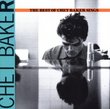| All Artists: Joan Sutherland, Curtis Rayam, Alicia Nafe, Isobel Buchanan, Huguette Tourangeau, Samuel Ramey, Handel, Richard Bonynge, Welsh National Opera Orchestra Title: Handel: Rodelinda (Complete Opera) Members Wishing: 0 Total Copies: 0 Label: London / Decca Release Date: 10/25/1990 Album Type: Import Genre: Classical Style: Number of Discs: 2 SwapaCD Credits: 2 UPC: 028941466723 |
Search - Joan Sutherland, Curtis Rayam, Alicia Nafe :: Handel: Rodelinda (Complete Opera)
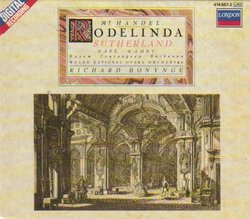 | Joan Sutherland, Curtis Rayam, Alicia Nafe Handel: Rodelinda (Complete Opera) Genre: Classical Rodelinda belongs to that marvellous sequence of Handel's operas dating from 1724 and 1725; it followed hard on Giulio Cesare and Tamerlano. Burney justly reckoned that it was entitled "to one of the first places among Han... more » |
Larger Image |
CD Details
Synopsis
Product Description
Rodelinda belongs to that marvellous sequence of Handel's operas dating from 1724 and 1725; it followed hard on Giulio Cesare and Tamerlano. Burney justly reckoned that it was entitled "to one of the first places among Handel's dramatic productions". It led-if in heavily arranged form- the German Handel opera revival of the 1920s, and the late-lamented Handel Opera Society gave it, with Joan Sutherland, during the 1959 celebrations of Handel's bicentenary. This is its second recording, preceded only by a Westminster set of 1964 under Brian Priestman (only highlights of which were issued in the UK by EMI-CSD3555, 8/66-nla).
I wish I could say that this version improves on the old Westminster. It does not, except of course in matters of recorded sound-in which respect it is vivid, rather spacious for a quite modest-scale opera, and slightly marred by the very forward balance accorded to the voices. Most of the voices, however, can stand it. Dame Joan Sutherland produces generous quantities of golden tone and accurate singing in the divisions; but I have to say that her almost consistently languid mode of expression is by no means always well suited to the music. Handel starts off the opera by playing his trump cards: there are two arias for Rodelinda, and another pair after most of the other singers have had a hearing. and the more spirited "Morrai si", where she determines to kill the usurper to her husband's throne, is 'edited' with all kinds of rhythmic changes which greatly diminish its force. Her first Act 2 aria, her second, in the siciliana rhythm that Handel so often used for characters in distress is one of the high spots in the work and indeed in this performance of it. Another should have been her remarkable last-act aria in F minor, with its extraordinary accompaniment!
I wish I could say that this version improves on the old Westminster. It does not, except of course in matters of recorded sound-in which respect it is vivid, rather spacious for a quite modest-scale opera, and slightly marred by the very forward balance accorded to the voices. Most of the voices, however, can stand it. Dame Joan Sutherland produces generous quantities of golden tone and accurate singing in the divisions; but I have to say that her almost consistently languid mode of expression is by no means always well suited to the music. Handel starts off the opera by playing his trump cards: there are two arias for Rodelinda, and another pair after most of the other singers have had a hearing. and the more spirited "Morrai si", where she determines to kill the usurper to her husband's throne, is 'edited' with all kinds of rhythmic changes which greatly diminish its force. Her first Act 2 aria, her second, in the siciliana rhythm that Handel so often used for characters in distress is one of the high spots in the work and indeed in this performance of it. Another should have been her remarkable last-act aria in F minor, with its extraordinary accompaniment!


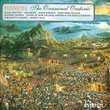
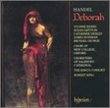
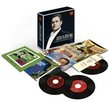
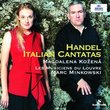

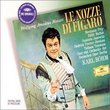
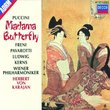



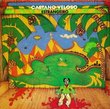
![Gershwin: Porgy & Bess [With Members of the Original Cast]](https://nationalbookswap.com/cd//m/71/7871/117871.jpg)
